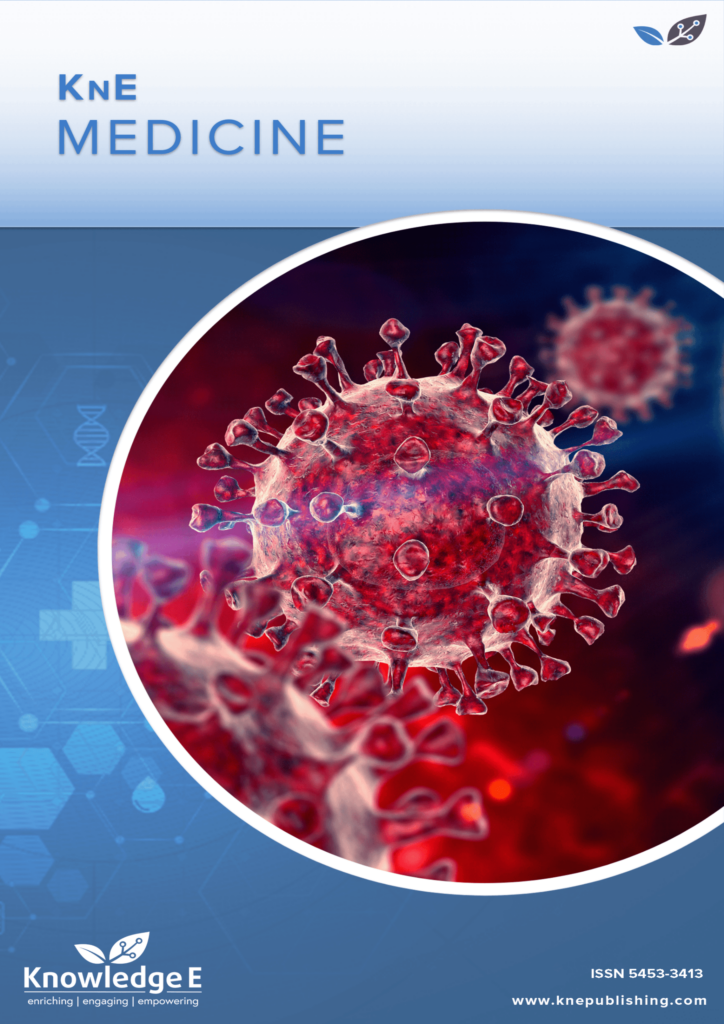
KnE Medicine
ISSN: 2519-125X
The latest conference proceedings on all fields of medicine.
The Role of Posyandu Community Health Workers in Improving the Health of Mothers and Children
Published date: Jun 03 2022
Journal Title: KnE Medicine
Issue title: The 4th International Seminar on Global Health (ISGH4)
Pages: 269–276
Authors:
Abstract:
The COVID-19 pandemic has led to a decline in the quantity and quality of maternal and child health services in Indonesia, especially of Posyandu. According to data from the Ministry of Health, at the end of 2019 there were 298,058 Posyandu in Indonesia and only 65.42% were active. To improve the quality of Posyandu, especially when promoting the adaptation of new habits, community health workers (CHWs) play a very important role. CHWs are expected to be drivers for communities to obtain health services. The purpose of this study was to identify the role of and barriers faced by CHWs in improving maternal and child health in Posyandu Cempaka Mekar Cimahi. This was qualitative research, and data were collected through observations, documentation analysis and interviews with CHWs, pregnant women, and mothers who had babies and toddlers in the work area of Posyandu Cempaka Mekar Cimahi. Secondary data were collected from notes, books and brochures. Data were analyzed using interactive analysis models through four stages: data collection, data reduction, data presentation, and verification. It was found that the role of CHWs in improving maternal and child health in Posyandu Cempaka Mekar was by conducting socialization, counseling and mentoring activities. The obstacles faced by CHWs were a lack of human resources, a lack of supporting devices for CHW activities and a lack of implementation processes. The active role of CHWs in the implementation of Posyandu continues to run well so that the target group still benefits from Posyandu services.
Keywords: community health worker, maternal and child health, adaptation of new habits
References:
[1] Kemenkes RI. Pedoman umum pelaksanaan posyandu.Departemen Kesehatan Republik Indonesia. 2016;19:32–34.
[2] Saepuddin E, Rizal E, Rusmana A. Posyandu roles as mothers and child health information center. Record Library Journal. 2018;3(2):201-206.
[3] Kementerian Kesehatan RI. Panduan pelaksanaan pemantauan pertumbuhan di posyandu pada masa adaptasi kebiasaan baru. Infeksi Emerging Kementerian Kesehatan RI; Jakarta. 2021.
[4] Suharyanto E. Analisis pelaksanaan revitalisasi posyandu di wilayah kerja puskesmas citeureup kota cimahi. Neliti; 20 Agustus 2020. Available from: https://www.neliti.com/id/publications/330465/analisis-pelaksanaan-revitalisasiposyandu- di-wilayah-kerja-puskesmas-citeureup
[5] Syamsuddin AB. Paradigma metode penelitian kualitatif dan kuantitatif. Fakultas Dakwah dan Koumunikasi UIN Makasar. Makasar; 2016.
[6] Yuantari C, Handayani S. Buku ajar statistik deskriptif dan inferensial. Badan Penerbit Universitas Dian Noswantoro. Semarang. 2017.
[7] Puspita S, Waty ERK, Husin A. Partisipasi masyarakat dalam mengikuti kegiatan posyandu mawar di kecamatan indralaya ogan ilir. Jurnal Pendidik dan Pemberdaya Masyarakat. 2018;5(2):54–65.
[8] Rayasari F, Sofiani Y, Kamil AR, Irawati D. Peningkatan peran kader kesehatan menuju adaptasi kebiasaan baru pada kelompok penderita dan resiko penyakit tidak menular (ptm) di rw 07 kelurahan. Journal Community. 2021;4(2):441–6.
[9] Sagita A. Peran kader posyandu dalam meningkatkan kesejahteraan ibu dan anak di dusun lamasariang kelurahan balanipa kecamatan balanipa kabupaten polewali mandar. Occupational Medicine (Chic Ill). 2017;53(4):130-137.
[10] Notoatmodjo S. Promosi Kesehatan dan ilmu perilaku. Rineka Cipta. Jakarta. 2007.